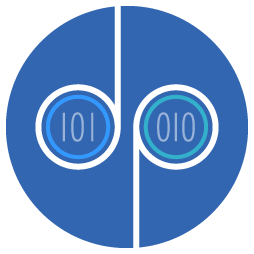5 Years as My Own Boss
May 10, 2011 — By Dr. Pete May 1st was the official 5-year anniversary of launching my consulting firm, User Effect. In the fall of 2005, I quit my job as VP of a 16-person software company (after 8 years). I liked the people and the work was ok, but something just felt wrong.
May 1st was the official 5-year anniversary of launching my consulting firm, User Effect. In the fall of 2005, I quit my job as VP of a 16-person software company (after 8 years). I liked the people and the work was ok, but something just felt wrong.
I can give 100 reasons for why I quit, but only one really matters: when I walked from the car to the office door, I could feel a storm gathering, like one of those rain clouds that follows people in a Peanuts cartoon. I hated my job, and I was tired of pretending that I didn't.
Last year was a big year – I really solidified my direction, doubled my revenue over 2009, finally incorporated and did a lot of i-dotting and t-crossing, all while turning 40 and being a first-time dad. You'll never hear me say that I've "made it" (I'm my own worst critic), but I've learned a lot in the past 5 years, and I thought it would be a good time to share a few of those lessons:
1. You're never the boss.
If there's one thing I'm tired of hearing from people, it's probably: "It must be great to be your own boss." At one point early last year, I counted and realized that I had something like 17 bosses. In other words, 17 different people could call or email me, and I would most likely agree to do what they said (if I wanted to keep them as clients).
Of course, I'm a consultant, so you might think it's different if you're a writer or creative type. Even if you don't have clients, you have an audience, and make no mistake – they're the boss. I write for a 90K-subscriber search marketing blog, and I can tell you that each of those 90,000 people are my boss when I'm working on a post.
You'll always be accountable to someone, and that's probably a good thing.
2. You have to want it.
There are a lot of thankless tasks when you're your own boss. You know how someone at your office sells the projects, picks up the phone, pays the phone bill, changes the toilet paper, makes the coffee, bills the clients, pays the taxes, mows the grass, and makes sure you get paid every 2 weeks? Those "someones" are all you now.
For techie types, the hardest part of that is that you have to sell, and you can't sell if you don't want it. Pick your word: "passionate", "hungry", "motivated" – you'd better be all of those things.
3. Freedom is terrifying.
Some people think that the worst thing in the world is being told what to do and when to do it. Freedom sounds good, until it's staring you in the face. There's something about the void of limitless potential - of knowing that you could do anything today - that can be absolutely horrifying. You'll stare at the computer, paralyzed, and you'll second-guess yourself into a fetal position. Make sure you're ready for the reality of total freedom, and not just the fantasy of it.
4. Look wide, aim narrow.
When you're just getting started, you want to do everything and please everyone. It's normal to not want to turn away any business, but when you aim for everything, you end up with a vague, indecisive message. Worse yet, no one you talk to can really communicate what you do to the next person (in other words: goodbye referrals).
It's tough, but you have to pin yourself down and take aim at something small. When I launched my packaged site audits (usability-focused), it was really tough. I'm a generalist, and I wanted to keep my options open. As soon as I did that, though, people started getting what I was all about. Ironically, even though they didn't usually buy the audit, it got them talking to me and actually broadened the scope of my client work.
It takes good aim to get your foot into a closing door. You've got plenty of time to widen your reach once that door opens.
Stepping away from business, I see this same issue in my broader life (and my friends' lives) as we've hit our 30s (and now 40s). We don't want to make choices, because picking a direction means giving up on some other direction, and that would mean throwing away one or more of our dreams. I think that's the essence of mid-life crisis.
Make no mistake - if you never choose, you're throwing away all of your dreams. At some point, you have to pick a direction – moving North means you can't go South for a while – but your only other option is to stand still.
5. Envy is completely useless.
When you go out on your own, you'll be bombarded by envy. Your friends will envy you for having freedom and being your own boss (see point 1). You'll envy them for having a steady paycheck, health insurance, and a 401K. Once you start working, you'll envy everyone on the internet who's doing everything better than you.
Let me be blunt – all that envy is absolutely fucking useless. Every decision in life has tradeoffs, and some things are going to be harder when you're on your own. If you sit at your desk staring out the window feeling jealous of everyone who walks by, you will fail.
I'd do it again in a heartbeat.
I'm not sure I've painted the brightest picture of self-employment, and there are plenty of tough days, but I'd make the same choice over and over (if the warp core breached and I got stuck in a time loop or something). I've realized over time that I don't work the way people are supposed to work.
Sitting in an office from 9-to-5 (or 8-to-8) is like wearing my skinny jeans because I ran out of laundry – it's uncomfortable, I can't breathe, and my manhood gets squeezed in unfortunate ways (figuratively-speaking).
I love not commuting, I love making lunch in my own kitchen, and I absolutely love spending even a few minutes extra time with my daughter. I'm not saying I'd never go back to an office, but I have no regrets at all about the direction I've chosen.
I can't close this out without thanking a few people, most of all my brilliant, lovely, and hard-working wife, Nancy. I'd also like to thank my old friends and clients at Seminar Information Service and Tews Interactive, as well as the great teams at SEOmoz and Walker Sands with whom I have the good fortune of working. Special thanks, too, to everyone who's read and supported the User Effect blog and my work across the industry over this past 5 years.
Home | Who is Dr. Pete? | Are You A Real Doctor? | Can I Hire You? | Archive
©2024 User Effect, LLC.
